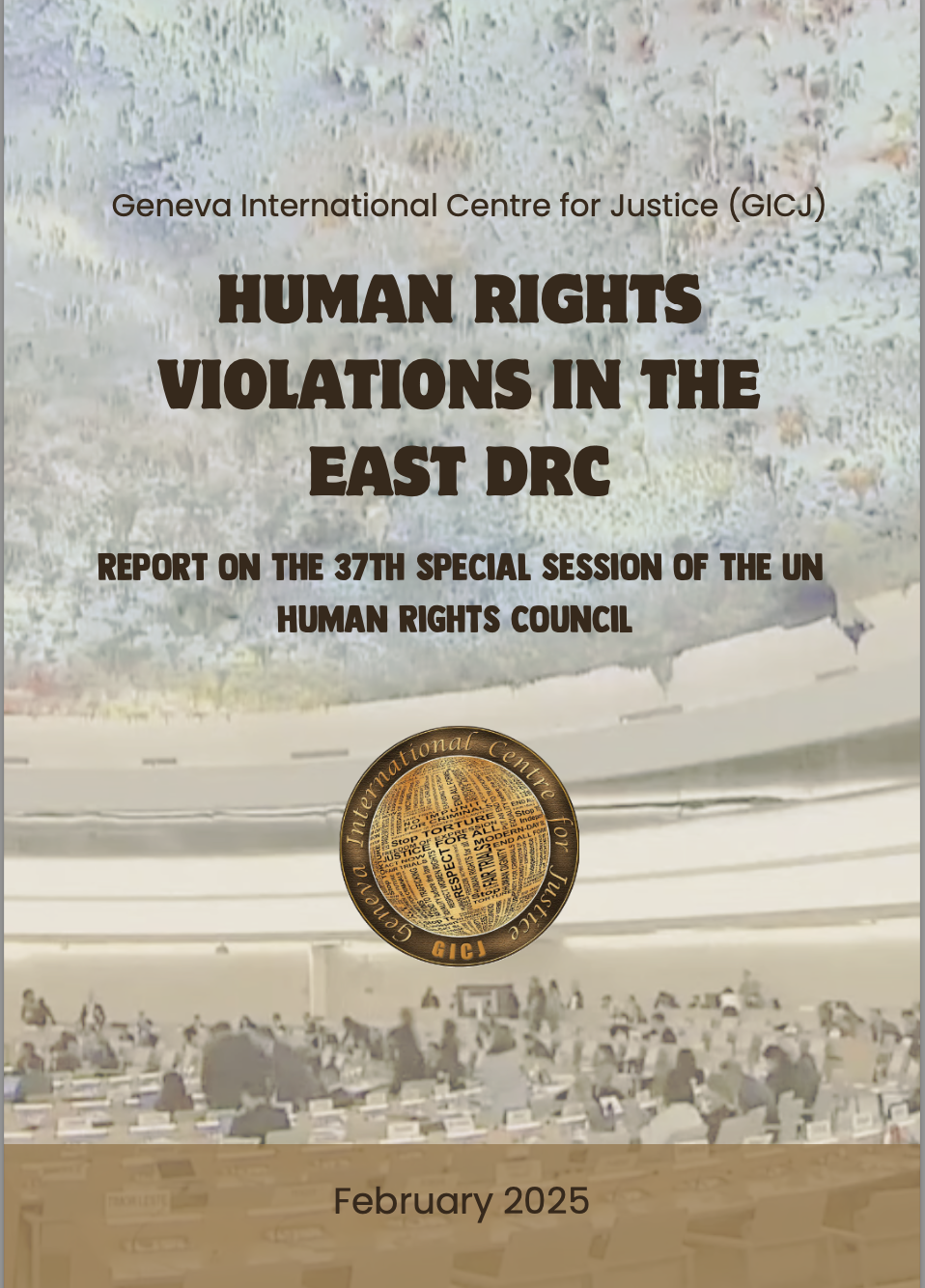HRCS-37: Human Rights Violations in the East DRC
37th Special Session of the Human Rights Council
7 February 2025
By Lorenzo Bersellini / GICJ
Executive Summary
After more than two weeks of intense fighting in the East Provinces of North and South Kivu in the Democratic Republic of Congo (DRC), the Human Rights Council convened its 37th special session to discuss the reports of grave alleged human rights violations documented on the ground.
The ongoing dispute, which is part of the broader conflict that has been affecting the DRC for the last three decades, has pitted government forces and allied armed groups against the rebel group Mouvement du 23 Mars (M23), a militia created in 2012 and backed by Rwanda. Beginning at the end of January 2025, the M23 launched an offensive against Goma, whereby they gained control of the city and expanded in the adjacent region. During its military campaign, the M23 and Rwandan government forces have been accused of perpetrating grave human rights violations and breaches of international law, including summary executions, sexual and gender-based violence, forced conscription and recruitment of children, and attacks against internally displaced people (IDPs). The M23 and its allies did not spare peacekeepers belonging to the United Nations Organisation Stabilisation Mission in the DRC (MONUSCO), thereby killing more than ten of its members and injuring many, in what might constitute a war crime.
With this background as the main focus of the special session, delegations called for the M23 and Rwanda to respect the DRC’s sovereignty and territorial integrity by immediately withdrawing and to restore unimpeded humanitarian access in the region, as the humanitarian situation worsens every day of the conflict. Indeed, lack of water, food, basic medical supplies, and electricity have endangered the local population since the beginning of hostilities. The countries present urged Rwanda to cease all support to the M23.
Nevertheless, delegations also expressed their concerns for other salient aspects. Multiple states condemned the DRC's spread of hate speech against its own Tutsi minority. This has been reinforced by the government affiliation with the Forces Démocratiques de Libération du Rwanda (FDLR) militia, a rebel group whose ranks are filled with former militants who fled Rwanda after the 1994 genocide, of which they bear main responsibility. Rwanda, in fact, justifies its military presence in the DRC as a national security priority, in order to prevent the conflict from spilling over its border and the FDLR from continuing its genocidal project.
In light of this, all parties to the conflict have been urged to follow international humanitarian law and human rights law in their conduct and to settle the dispute diplomatically. In particular, emphasis was put on prioritising the Nairobi and Luanda Processes, two regional initiatives aimed at facilitating the resolution of the conflict in the DRC. Moreover, many delegates mentioned the summit of leaders organised by the East African Community (EAC) and the South African Development Community (SADC) on 7 and 8 February 2025 in Dar-er-Salaam as another appropriate venue to settle the crisis, thereby upholding the principle of “African solutions to African problems”.
Furthermore, some delegations highlighted the economic implications of the conflict. In particular, they focused on the mineral exploitation in the Eastern part of Congo, benefitting foreign companies and governments at the expense of the civilians involved in the mining process. Such operations were condemned during the course of the session.
The vast majority of delegations agreed with the DRC’s proposal to establish an independent fact-finding mission with the mandate to investigate, monitor, report on, and verify the alleged human rights abuses and violations in North and South Kivu, with a view to ensure accountability for the perpetrators of such crimes.
All these views were reflected in the adoption without a vote of Draft Resolution A/HRC/S-37/L1, which condemns the M23 and Rwanda for the violence and violations of human rights and international humanitarian law, urges them to withdraw from the DRC, condemns the unlawful exploitation of natural resources in the region, and establishes an independent fact-finding mission as requested by the DRC.
Geneva International Centre for Justice (GICJ) is appalled by the reports of widespread human rights violations, particularly in the case of sexual violence against women and children, and the attacks on internally displaced people. It urges all parties to the conflict to respect human rights and international humanitarian law, with no derogation and no further delay. GICJ strongly denounces the recurrent bombings in heavily populated areas, which further puts at risk civilians and innocent people. We deplore the attacks against peacekeepers in the region and offer our condolences to the families of those who have perished. Crucially, we call for all businesses and governments to place the protection of civilian lives, including those of children, before their economic interests in the pursuit of natural resources in the area. Action must be taken urgently to stop exploitation and abuses in the mining sector. Accountability needs to be established for all perpetrators of violations and they must be brought to justice.
To read the full report, please click the image below








